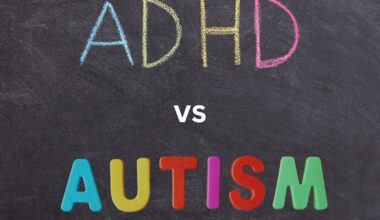How to Heal Your Mental Health?
It’s easier than you might think to protect our mental health; we can all do it daily, and by doing simple activities that help us feel better, we can manage life more effectively. Healing your mental well-being is a process rather than a result. It’s about finding resilience, serenity, and balance in a world that seems chaotic most of the time. Encouraging yourself to heal your mental health is essential, regardless of whether you’re experiencing stress, worry, or despair. In this blog post, I will discuss some methods to help you heal your mental health. You can make great progress toward becoming a happier, healthier version of yourself by learning about these techniques and implementing them in your daily life.
Key Takeaways
- Our emotional, psychological, and social well-being are all included in our mental health. It influences our feelings, thoughts, and behaviors.
- Healing your mental health increases happiness and fulfillment, strengthens your physical health, improves productivity and performance, helps build stronger relationships, and increases or improves resilience.
- To heal your mental health always practice self-care, seek professional assistance, build a good support network, stay positive and active, always practice mindfulness and meditation, and have enough sleep.
Shedding Light on Mental Health

Let’s first define mental health before discussing how to heal it. Our emotional, psychological, and social well-being are all included in our mental health. It influences our feelings, thoughts, and behaviors. It also influences how we respond to stress, interact with people, and make decisions. Having good mental health means being able to handle life’s challenges, achieve success at work, and give back to your community.
According to the World Health Organization (WHO), one in four people will experience mental or neurological illnesses at some point in their lives. This figure emphasizes how critical it is to address mental health concerns and find practical ways to heal.
Why Healing Your Mental Health Matters

Let’s discuss the importance of improving your mental health. It is not merely a term; rather, it is essential to our general well-being. It’s comparable to a house’s foundation as everything built on it will become shaky if it’s unstable.
#1. It increases happiness and fulfillment
When you’re in good mental health, you’re more likely to enjoy everyday activities, maintain healthy relationships, and pursue your goals with enthusiasm. I remember a time when I was overburdened with work and personal responsibilities. My mental health suffered, and I found it difficult to enjoy even the simple pleasures in life. However, once I began making mental health a priority, I noticed an immediate surge in my general well-being and engagement with life.
#2. It strengthens our physical health
Mental and physical health are intimately related. Poor mental health can result in physical health issues like headaches, high blood pressure, and a compromised immune system. In contrast, strong mental health can lead to better physical health. For example, stress management can lower the risk of developing chronic diseases.
Adding regular exercise to your routine can be a turning point for you. It will not only improve your physical health but also have a significant impact on your mental health. Exercise causes the production of endorphins, which are natural mood enhancers that help you manage stress and feel more energized.
#3. It improves productivity and performance
According to the World Economic Forum, poor mental health costs the global economy $1 trillion annually in lost productivity. In order to perform at your best and maximize productivity, it is imperative that you maintain good mental health. In my professional experience, I have seen firsthand how practicing mindfulness, setting boundaries, and taking breaks have allowed me to stay focused and productive—even during hectic times.
#4. It helps build stronger relationships
Relationship quality is greatly impacted by one’s mental health. Having good mental health makes it easier to connect with others, communicate effectively, and constructively resolve conflicts. Having poor mental health, on the other hand, can result in misunderstandings, irritability, and isolation. I noticed that my relationships were suffering during a particularly stressful time in my life because I was withdrawn and quickly agitated. However, after I started working on my mental health, I discovered that my relationships significantly improved. I became more understanding and patient with those I loved.
#5. It increases or improves resilience
Being resilient means having the capacity to overcome hardship. Resilience is enhanced by good mental health, which makes it simpler to deal with obstacles and failures in life. A study that was published in the Journal of Occupational and Environmental Medicine indicates that those who are resilient are better able to manage stress and are less likely to burn out.
Steps to Heal Your Mental Health
It needs patience, self-compassion, and a willingness to try new approaches to heal your mental health. To help you get started, consider the following steps:
#1. Always practice self-care
A National Alliance on Mental Illness (NAMI) study found that self-care is crucial for stress management and burnout prevention. Taking the time to do things that enhance your physical and mental well-being is referred to as self-care. This can involve engaging in hobbies or activities like working out, reading, or spending time with close friends and family.
Taking time out of my day to do something I enjoy, like reading a book, taking a stroll, or doing yoga, is how I define self-care. I can stay mentally well and rejuvenated by engaging in these activities.
#2. Seeking professional assistances
Reaching out to a mental health professional is not a sign of weakness. Counselors and therapists can offer you safety, coping mechanisms, and a supportive environment in which you can discuss your feelings. According to the American Psychological Association, therapy can be used to treat a variety of mental health conditions, such as anxiety, depression, and relationship and stress concerns.
You can never be the same after therapy. Talking to a supportive, unbiased individual can help you gain perspective and create better coping skills.
#3. Building a good support network
A Harvard study found that those with close social ties are happier, healthier, and have longer lifespans. A solid support system is essential for mental health. A sense of belonging, practical assistance, and emotional support can all be obtained from friends, family, and community organizations.
My mental health has greatly benefited from spending time with my family and re-establishing relationships with old acquaintances. Knowing that I have individuals who support and care about me makes a big difference.
#4. Stay positive and active
Engaging in physical activity can significantly enhance mental well-being. Exercise improves sleep, lowers stress, and releases endorphins. Adults should engage in moderate-intensity aerobic exercise for at least 150 minutes per week, according to the Centers for Disease Control and Prevention (CDC).
Including regular exercise in your daily routine will improve your mental well-being significantly. Engaging in physical activity, such as going for a brisk walk, doing yoga, or going to the gym, can aid with stress management and increase energy levels.
#5. Always practice mindfulness and meditation
Mindfulness and meditation can help you reduce stress, focus better, and regulate your emotions. A study published in the Journal of Clinical Psychology discovered that mindfulness-based therapies can dramatically reduce symptoms of depression and anxiety.
Starting your day with a short meditation session can help you stay focused and relaxed, even in stressful situations. Apps such as Headspace and Calm provide guided meditations that are simple to follow and extremely useful.
#6. Have enough sleep
Sleep is essential for mental wellness. Lack of sleep can cause irritation, mood fluctuations, and cognitive impairment. The National Sleep Foundation suggests that individuals get 7-9 hours of sleep per night.
Setting up a nightly regimen, such as turning off screens an hour before bed and reading a book, has helped me improve my sleep quality and overall mental health. It’s remarkable how much better you feel after a good night’s sleep.
#7. Practice healthy eating
Nutrition plays an important impact in mental health. Diets high in fruits, vegetables, whole grains, and lean meats can boost brain function and mood. Omega-3 fatty acids, found in fish and flaxseeds, are very good for mental wellness.
You will notice an important boost in your mental clarity and happiness if you start eating more healthy foods and avoiding processed sugary treats. Simple changes, such as having a smoothie with spinach, berries, and flaxseeds for breakfast, can have a significant impact.
#8. Reduce the intake of alcohol and drug addiction
Substance addiction can exacerbate mental health issues. Limiting alcohol use and avoiding drugs can help you retain mental clarity and emotional stability. Reducing your intake of alcohol can enhance your mood swings and general emotional stability. It’s critical to be aware of how substances can impact your mental health.
#9. Be thankful and show gratitude
Cultivating the habit of gratitude can improve your mental health by changing your emphasis away from what you lack and toward appreciating what you have. Keeping a thankfulness notebook is a simple yet powerful approach to do this.
#10. Set achievable goals
Setting and attaining achievable goals can increase self-esteem and give you a sense of purpose. Break down major ambitions into smaller, more doable tasks to prevent feeling overwhelmed.
Setting small, attainable goals, such as learning a new recipe each week, will boost your confidence and sense of fulfillment. You must acknowledge your accomplishments, no matter how modest.
Additional Healing Mental Health Tips

Here are some additional tips on how to heal your mental health below:
#1. Taking control of your anxiety
Anxiety can be devastating, but there are ways to control and overcome it. I’ve been dealing with anxiety for years. It often felt like a big weight on my chest, making it difficult to breathe and think clearly. Therapy and mindfulness techniques have helped me recognize my triggers and develop coping mechanisms. Deep breathing, gradual muscular relaxation, and cognitive-behavioral therapy (CBT) have all proven effective.
#2. Managing Depression with confidence
Depression is more than just sadness; it is a persistent sense of helplessness and disinterest in life. During a particularly rough phase, I struggled to get out of bed, let alone do my regular tasks. Seeking professional assistance was vital. My therapist assisted me in developing a treatment plan that included medication, regular exercise, and cognitive restructuring.
#3. Dealing with Stress
Stress is inevitable in life, but prolonged stress can have a negative impact on your mental health. Setting boundaries and prioritizing self-care have proven vital in stress management for me. For example, during a busy work season, I made an effort to take brief breaks during the day, practice yoga in the evenings, and disconnect from work emails after hours. These minor adjustments helped me manage stress and maintain my mental health.
#4. Developing resilience
Resilience is the ability to recover from misfortune. After suffering a huge loss in my profession, I felt devastated and uncertain about my future. However, by focusing on developing my resilience, I was able to negotiate difficult situations and emerge stronger. This entailed finding support from friends and family, practicing self-care, and setting new, attainable goals. Resilience is not about avoiding obstacles, but about building the strength to face them.
These activities are relatively simple and inexpensive to accomplish with minimal time and effort. Take a balanced approach. Avoid relying too heavily on one mode of coping. For example, it is recommended to limit the amount of time spent on sedentary hobbies such as gaming or reading. Try combining a few strategies such as working out to music
Conclusion
Healing your mental health is a process that involves time, perseverance, and self-compassion. By incorporating these tactics into your everyday routine, you can make substantial progress toward mending and sustaining your mental health. Remember that it’s good to seek help and make time for yourself. Your mental health is a worthwhile investment.
So, what steps are you going to take today to start healing your mental health? Tell us your views and experiences in the comments!
Related Articles
- How to Maintain Good Mental Health
- What are 5 Ways to Improve Mental Health
- Why is it Important to Take Care of Your Mental Health
- How to Heal From Codependency
- 12 Signs You Are Healing from Trauma






